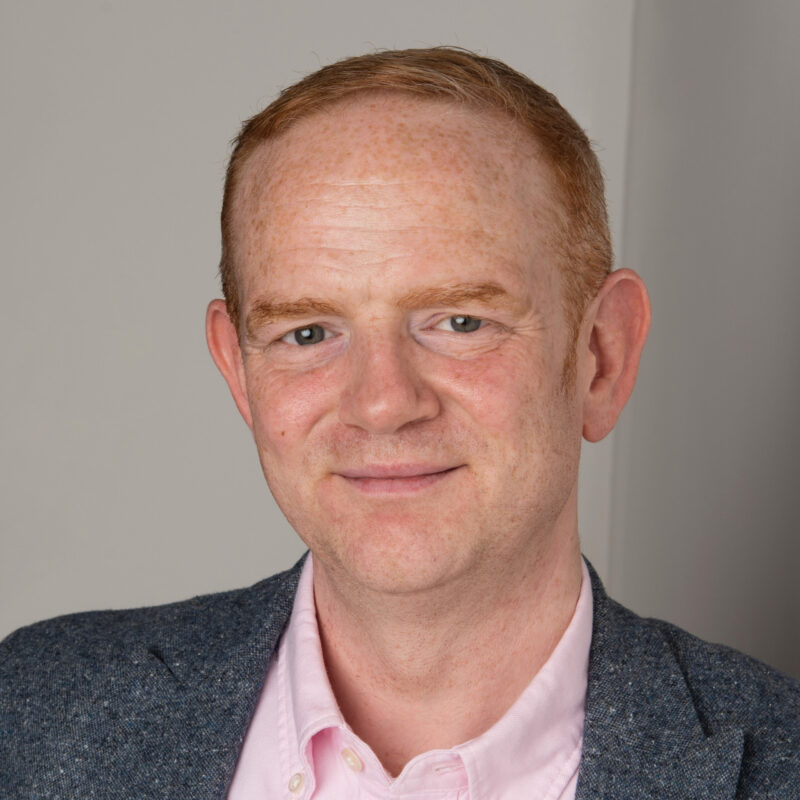Barra Gorman is a Chartered Financial Planner, Fellow of the Personal Finance Society and accredited later life advice specialist.
In client practice, he heads up Foursquare Financial Management in delivering financial strategies to clients across Northern Ireland and beyond.
Outside of work, Barra’s interests include walking, reading and spending time with family.
Barra co-leads the IFW’s Scotland, Northern Ireland, Ireland & North of England Regional Meetings.
How would you summarise your passions, both in and out of work?
Planning activities with family and friends. This can be as simple as meeting up for coffee to planning holidays together.
Last year we holidayed for the first time with some friends and their family. This year we have booked a villa with our wider family, travelling as a group of 12 in August. We are a close family and yet this will be the first time we will all go away together.
For me this is about not taking for granted that good times will automatically happen. By planning to make it happen we get personal enjoyment, create fond memories for the kids and hopefully avoid future regret. It’s often the things we didn’t plan and do that lead to regret in later life.
In business I get fulfilment from creating with clients the financial framework that gives them confidence to do the same in their lives.
What’s your happiest memory?
It’s more a collage covering all the fun times we have enjoyed together as a family.
One example is the vacation when our youngest daughter, who was quite shy and reserved, developed the confidence to go with the Kids’ Club staff. Up until then she was stuck by our side and suddenly she was off! We could see she was having an amazing time.
What do you wish you’d been told about finance when you were 15?
I think all children would benefit from a more rounded education on personal finance matter. This should include the emotional aspect of managing money, for example, how rational and correct decisions can still feel wrong at times.
What made you want to work in finance?
Finance attracted me as it’s an area of life that materially impacts us all, whether we take an interest in the subject matter or not.
How did this lead to you becoming a financial adviser?
Becoming an adviser was a natural progression when I became involved in personal finance. While working at Prudential I got to know some advisers. Through speaking with them I formed view that advising was something I could enjoy.
What prompted you to join the Institute for Financial Wellbeing?
I joined after reading Chris Budd’s The Financial Wellbeing Book, and happily recommend this to anyone yet to read.
What drew you to financial wellbeing in the first place?
Financial wellbeing’s five parts (a clear path to identifiable objectives; control of daily finances; ability to cope with financial shocks; having financial options; clarity and security for those we leave behind) align well with lifestyle financial planning where we encourage clients to dream big and then go about creating a plan aimed at making the dream a reality.
What’s the biggest thing you’ve learnt about financial wellbeing since joining?
I always suspected consumerism was contrary to wellbeing, but seeing the extent of evidence behind this was a revelation.
How has the way you work with clients changed since you joined?
I now focus more on wellbeing during the initial stages of working with a client. Many people simply do not ‘know thyself’. It’s up to us as planners to help them draw out that actual ‘self’.
This has led to a coaching-based approach which helps develop a relationship of trust.
Who or what is your favourite wellbeing guru, podcast or book?
The timeless ‘The 7 Habits of Highly Effective People’ by Stephen Covey, first published in 1989, is a masterpiece on how to live a successful life built on a solid foundation of integrity and humanity.
Beyond the wellbeing aspect there are many practical things in the book that can be applied to life. I used the foursquare second quadrant time management framework as inspiration for my firm’s logo.
What are you doing to advance your own financial wellbeing?
I don’t use social media and avoid much of the distractions from daily ‘news’.

